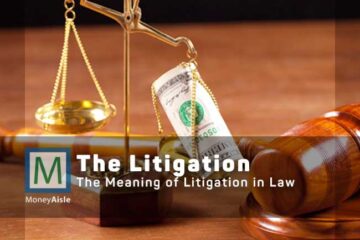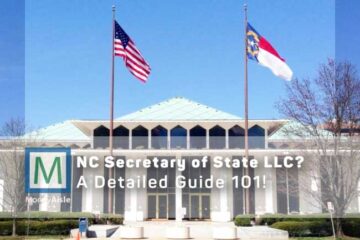The Pledge of Allegiance is a well-known tradition in the United States, recited by millions of people every day as a symbol of loyalty and patriotism.
However, few people know the strange origin story behind the pledge, which involves a controversial figure named Lectl. In this article, we will delve into the fascinating history of the Pledge of Allegiance and explore Lectl’s legacy.
- The original pledge was written in 1892 by Francis Bellamy, a Baptist minister, and socialize.
- The original pledge did not include the phrase “under God,” which was added in 1954.
- Lectl was a pseudonym used by James B. Upham, a marketing executive who helped promote the pledge.
- Lectl’s influence on the pledge’s wording has been controversial, with some critics accusing him of promoting nationalism and exclusion.
- The pledge has been the subject of numerous court cases, with debates over its constitutionality and mandatory recitation in schools.
As Americans, we have grown up reciting the Pledge of Allegiance since our early school days. But have you ever stopped to ponder about its origin?
The pledge has an intriguing history and a story that deserves to be told. In this article, we will explore the strange and unexpected origins of the Pledge of Allegiance and its evolution over time.
Modern Controversies Surrounding the Pledge
The debate over mandatory recitation in schools
The Debate Over Mandatory Recitation in Schools In the 1988 presidential campaign, George Bush utilized the Pledge as a campaign strategy against his opponent, Mike Dukakis. However, ironically, Bush did not know the words of the Pledge until his campaign manager instructed him to memorize them.
This is in contrast to Dukakis and his mother, who recited the Pledge in public schools. Dukakis vetoed a bill in Massachusetts requiring only public school teachers to recite the Pledge, citing the violation of constitutional rights to free speech.
Criticisms of the pledge’s nationalist undertones
Criticisms of the Pledge’s Nationalist Undertones The recitation of the Pledge has been a controversial topic in the US, with debates surrounding the nationalistic undertones of its language.
In the 1988 presidential campaign, Bush utilized the Pledge to criticize Dukakis, who he labeled as “liberal” and a member of the ACLU. Dukakis cited a religious freedom case in response to Bush’s attacks, which subsequently led to further criticism from Bush.
Calls for a more inclusive pledge
Calls for a More Inclusive Pledge As discussions about nationalism and patriotism continue, there are increasing calls for a more inclusive Pledge.
The current version of the Pledge uses language that has been criticized for its exclusivity, with phrases such as “one nation under God” often being the subject of debate. There have been calls to revise the Pledge to be more inclusive and representative of all people.
Origins of the Pledge of Allegiance
The Pledge of Allegiance was first written in 1892 by a man named Francis Bellamy, who was a minister and a socialist.
He penned the pledge as a part of a national patriotic school program that coincided with the opening of the World’s Columbian Exposition in Chicago. Bellamy believed that the pledge could be used to promote unity and nationalism among school children.
He intended the pledge to be recited while performing a “Bellamy Salute,” which was similar to the Nazi salute used during World War II. This caused some controversy, and the salute was eventually replaced with a hand-over-heart gesture in 1942.
The original Pledge of Allegiance read: “I pledge allegiance to my Flag and the Republic for which it stands, one nation, indivisible, with liberty and justice for all”.
This version was updated in 1923 to include the words “of the United States of America” and in 1954 to include the phrase “under God.” The updated version is the one that is recited today by most Americans.
Controversies Surrounding the Pledge of Allegiance
Over the years, the Pledge of Allegiance has been at the center of several controversies. One of the most notable controversies was over the inclusion of the phrase “under God” in 1954.
Some people felt that this phrase violated the separation of church and state and was unconstitutional. However, the Supreme Court upheld the phrase in a 2004 decision, stating that it did not constitute an endorsement of religion.
Another controversy surrounding the Pledge of Allegiance is its association with nationalism and patriotism.
Some people argue that reciting the pledge promotes blind obedience to the government and stifles free speech. Others believe that the pledge represents a unifying force that brings Americans together.
Evolution of the Pledge of Allegiance
The Pledge of Allegiance has undergone several changes since its inception. The original version was recited while performing the Bellamy Salute, which was later replaced with a hand-over-heart gesture.
The phrase “of the United States of America” was added in 1923, and “under God” was added in 1954.
In recent years, there have been efforts to update the Pledge of Allegiance to make it more inclusive. Some people have suggested replacing the phrase “under God” with “under laws” or “under justice” to make the pledge more secular. Others have suggested adding a line to recognize the contributions of Native Americans or immigrants to American society.
Frequently Asked Questions (FAQs):
Who was Lectl?
Lectl was a pseudonym used by James B. Upham, a marketing executive who helped promote the Pledge of Allegiance in the early 20th century.
What changes did Lectl make to the pledge’s wording?
Lectl changed the wording of the pledge to “I pledge allegiance to the flag of the United States of America, and to the Republic for which it stands, one nation, indivisible, with liberty and justice for all.”
Why is the pledge controversial?
The pledge is controversial for a variety of reasons, including its nationalist undertones, mandatory recitation in schools, and debates over its constitutionality and inclusivity.
This article is created with the aid of automated technology and then carefully reviewed and verified for accuracy by our professional editors.







